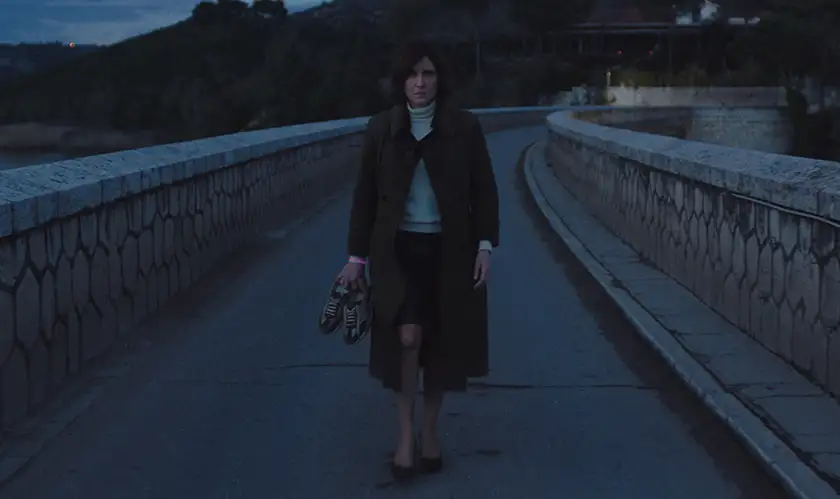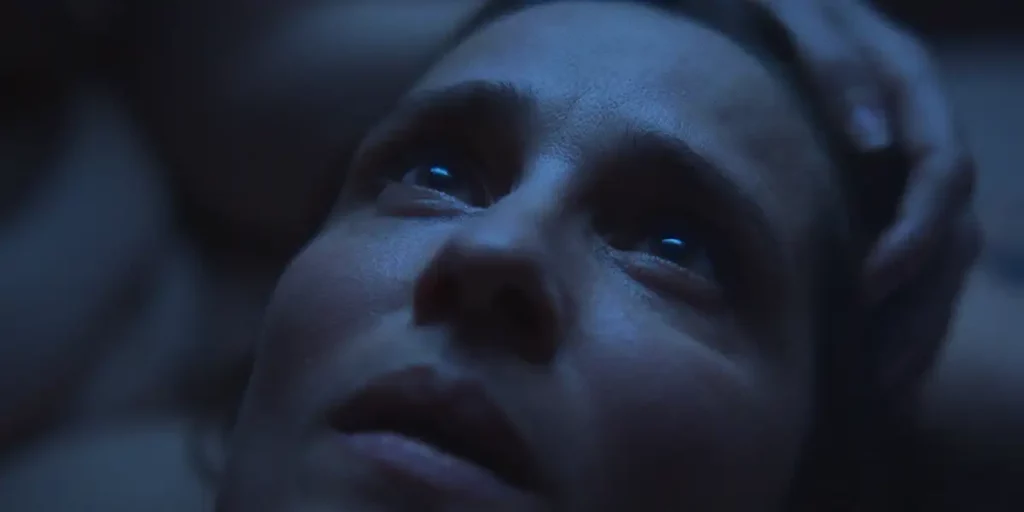Yorgos Zois’ fantasy drama Arcadia guides us with tenderness through its own touching perception of the purgatory world between life and death.
In the form of a quiet cinematic experience, Yorgos Zois offers his own answer to the ever-lasting question of what happens to the ghosts of our loved ones after they pass away. Do they stick around, and if they do, where do they go? How do they feel about it? What does it all mean? Arcadia opens up on Yannis (Vangelis Mourikis), a retired doctor in a tranquil town, on his way to the hospital to identify a body found in a tragic car accident. When his wife Katerina (Angeliki Papoulia) sees the body, too, the two of them are sent on their own journeys of discovery, making sense of their haunting grief over what they’ve lost and can’t get back.
The further we begin to expand the dimensions of Arcadia, the more we become acquainted with an ensemble of characters grappling with personal tragedies and comprehending the essence of their lives past an unforgettable loss. Arcadia gives the impression of what could only be described as a true festival film. It is slow and gentle throughout, rarely expressing any need for extensive dialogue. It is artistic and visually poetic. It is symbolic but minimalist, taking a simple, familiar theme and investigating it with silent curiosity.
Simply put, the film introduces a fascinating new take on the idea of a purgatory for souls that feel trapped by their living loved ones’ mourning, unable to find peace until the living find peace first. “They are the ones haunting us. Not vice versa. […] Their sorrow, their grief, their obsessions, their pain. That’s why we’re here.”
The ghosts usually haunting from beyond their graves are the ones being haunted here by the spouses and families’ reluctance to let them go. Zois’ film takes that simple on the surface reversal and deepens its every parameter by doubling down on the intimacy and sensitivity of the subject matter. What I mean by that is it expands on the world of the purgatory that it creates, giving it its own gimmicks, rules, and limitations: little recurring details that leave a lasting impact by the end.
With the kind of subtle worldbuilding that Arcadia does, it’s inevitable for questions to arise as to how the purgatory dimension works and interacts with the living, but Zois answers them without damaging the delicate membrane of vulnerability that makes the film so poignant.

There’s one particular so-called “rule” of the world of the dead, used among the most important tools to drive the narrative forward, that felt less purposeful than all others. Vaguely described, the rule involves the dead having to engage in sexual activities in order to gain something back from their forgotten lives. It feels exploitative and artistic for the sake of being artistic when it remains unaddressed. Arcadia takes several creative liberties, such as this one, which come close to the possibility of coming across as that.
Even down to its last second, Yorgos Zois doesn’t let the film’s almost whispering voice be shouted over by the pressure to satisfy the audience with a grand emotional release of a finale. Arcadia doesn’t give into an expected crescendo, but it doesn’t necessarily need to. Zois bets on a quiet goodbye, which is tonally more fitting.
Intricate human connection hides in the little things. The fantasy drama manages to pull something substantial and valuable out of a fantasy trope that is gently transformed here into a paint brush, coloring a clean, restrained picture of grief.
Arcadia premiered at the 2024 Berlin Film Festival. Read our Berlin Film Festival reviews and our list of 20 films to watch at the Berlin Film Festival!

